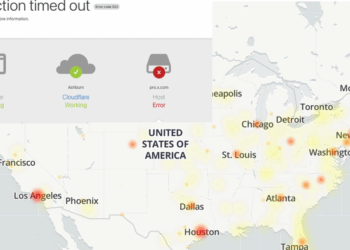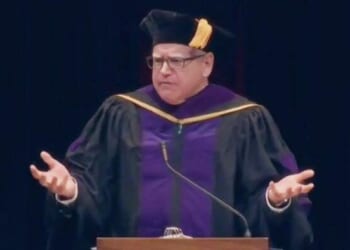from the uncharted-waters-are-still-navigable dept
There are two big reasons why the lawsuit the State of Arizona and Adelita Grijalva has brought against the House of Representatives to force Grijalva to be sworn in ultimately might not succeed: (A) because even if it seems to succeed initially it’s likely to end up before this slate of Supreme Court justices, whose majority seems deeply unconcerned by constitutional violations when those violations work to protect Republican power, and (B) because even reasonable jurists may still find Arizona’s claim to be beyond something the court could address for a number of reasonable reasons. After all, courts are not superior to Congress and entitled to micromanage its ordinary operation. And even the best lawsuits still need to clear a variety of justiciability hurdles, any one of which this case could conceivably get stuck on.
Nevertheless, the complaint does seem carefully drafted to navigate as many of those hurdles as possible. And principles of judicial review do allow courts to intercede when Congress has tried to act in a way that’s constitutional. Which is why this lawsuit is not ridiculous, because at its heart it’s about interceding when Congress has refused to act in a way it was constitutionally obligated, which is little different from interceding when it has acted in a way it is constitutionally forbidden. Passing an unconstitutional statute and refusing to operate the House chamber as constitutionally required are both about Congress exerting its powers in a way that is impermissible, which is what judicial review has long been available to police.
The lawsuit basically boils down to this: Arizona has elected an eligible candidate to a congressional term.
Ms. Grijalva’s constitutional qualifications have likewise never been in dispute. She meets all of the constitutional qualifications to serve in the House of Representatives, save for the fact that she has not yet taken the oath of office. See U.S. Const. art. VI, cl. 3 (“The … Representatives … shall be bound by Oath or Affirmation, to support this Constitution.”); 5 U.S.C. § 3331 (specifying the language of the oath); 2 U.S.C. § 25 (providing that the Speaker shall administer the oath to Representatives). [paragraph 8]
Which means that there is no basis to exclude her.
“[T]he Constitution leaves the House without authority to exclude any person, duly elected by his constituents, who meets all the requirements for membership expressly prescribed in the Constitution.” Powell v. McCormack, 395 U.S. 486, 522 (1966). [paragraph 4]
But here she is, functionally excluded, unable to do anything she was elected to do.
Defendants’ refusal to promptly seat Ms. Grijalva, and to treat her as a member of the House, injures her by denying her the ability to exercise the authority of a member of the House—e.g., to sign petitions, sponsor bills, obtain and provide information to her constituents about federal programs and matters pending before federal agencies, and advocate with federal agencies, all on behalf of her constituents. [paragraph 16]
And Arizona is constitutionally entitled to being fully represented for the entirety of the term, but with her absence, it’s not.
As of today, Arizona remains entitled to nine representatives. But Arizona presently has eight representatives sworn and seated in Congress, one fewer than the number to which it is entitled. (paragraphs 59-60)
Since she is eligible for office, if there were really some issue with her being in Congress then the Constitution spells out the sole remedy: expulsion, which requires a 2/3 majority vote. But it is only available after she has first been seated.
Therefore, if the House wishes to remove a member for other reasons, it must first seat the member, then expel by a two-thirds vote. Id.; see id. at 508, 512 (“[E]xclusion and expulsion are not fungible proceedings.”) [paragraph 33]
Yet here she is functionally excluded because she has not first been seated, even though no one has the authority to prevent it, not even the Speaker of the House, even if they are ostensibly acting consistent with statutes and House rules that are otherwise constitutional in endowing anyone with the sole authority to offer the oath.
The Speaker may not use his statutory obligation to administer the oath under 2 U.S.C. § 25 to arbitrarily delay seating a member when there is no dispute as to the election or qualifications and no practical reason why he is unable to administer the oath. [paragraph 12]
The crux of the argument is that those statutes and rules are constitutional only up to the point where they enable Congress to do something that transcends its Article I power. So while ordinarily the House can pass whatever rules it wants to give the Speaker lots of authority (no matter how ill-advised), and the relevant statutes about oaths ordinarily are facially valid, they cease to be valid in a situation as this where they have granted the power to swear in new members exclusively to one person who then refuses to do it.
There is some support for this notion, in the 1969 Supreme Court case of Powell v. McCormack (note that the citation in the complaint dates it to 1966, which appears to be a scrivener’s error possibly due to transposing the year of the election at issue in the case with the year the case was decided). In that case, like this one, someone had been elected, but the House refused to seat him. So he sued for, among other things, an injunction ordering the Speaker of the House to swear him in. His lawsuit was initially dismissed on jurisdictional grounds, with the district courts finding that they had no authority to order the House to operate in any particular way. The appeals court disagreed, finding the courts had the jurisdictional ability to intercede, but it nevertheless dismissing the case on other justiciability grounds. But the Supreme Court then stepped in to keep the case alive, finding that Powell was entitled to a declaratory judgment that he had been unlawfully excluded from the 90th Congress. [p. 489]
There are a few different things about that case and this one to keep in mind, but they ultimately don’t seem dispositive. For one thing, in Powell’s case, it was very obvious that the House was trying to impose additional eligibility criteria on him in refusing to seat him, and a major holding of the case is that Congress does not get to create new requirements not already in the Constitution. Here it is less obvious that Congress is trying to impose such requirements on Grijalva, except arguably it still is: it’s functionally created the requirement that a person can not be a Democrat elected in October 2025 and still be seated. But this issue is probably not what the case will turn on; what Powell stands for more generally is that Congress’s operation is still limited by constitutional text.
Another difference is that by the time Powell’s case was decided he had actually been re-elected, and this time actually seated. In fact, it led to some concern that his case might be moot by the time it had reached the Supreme Court, but because the injury he was suing for was essentially for retroactive damages, like a loss in salary, for the period in which he had not been seated it was able to continue in order to address the period of his unlawful exclusion. Whereas in this case, so far at least, the injury seeking remediation—the exclusion—remains current, and the remedy sought is the actual seating.
But this lawsuit is following the Powell roadmap in at least one key way. Because Powell had already been sworn in by the time the case reached the Supreme Court it meant that the quest to enjoin the Speaker, to force him to swear Powell in, was no longer on the table. That detail may have been important to the rest of the case, because dicta in the decision suggests that the Speech and Debate clause protects actual members of Congress from liability for their actions in Congress, and that protection potentially would preclude being bound by an injunctive remedy.
But the decision noted that Speech and Debate clause immunity only extended to actual members of Congress and not the employees effectuating Congress’s operation.
The Court first articulated in Kilbourn and followed in Dombrowski v. Eastland[23] the doctrine that, although an action against a Congressman may be barred by the Speech or Debate Clause, legislative employees who participated in the unconstitutional activity are responsible for their acts. [p. 504]
Notably, in Arizona’s lawsuit, no one has sued Johnson speaker to have a court order him to swear in Grijalva, which would be a much more uphill argument. Instead it has sued the House itself and senior House employees charged with its operation (the Clerk and Sargent-at-arms), as was proper in the Powell case. (“Although this action should be dismissed against respondent Congressmen, it may be sustained against their agents.” [p. 550]).
It also has made no specific injunctive demand. Instead it demands declaratory judgment, first that Grijalva be declared the sitting rep once she has taken the oath of office and that, because she is eligible, the Constitution and relevant statutes require that anyone authorized to give the oath give her the oath.
Because there is no dispute as to Ms. Grijalva’s election or qualifications, the Court should: A. Issue a declaratory judgment stating that Ms. Grijalva shall be deemed a Member of the House of Representatives once she has taken the oath prescribed by law, see 5 U.S.C. § 3331; B. Issue a declaratory judgment stating that if Speaker Johnson has not administered the oath, the oath may be administered to Ms. Grijalva by any person authorized by law to administer oaths under the law of the United States, the District of Columbia, or the State of Arizona[.] [last page of complaint]
In other words, what Arizona appears to be looking for is a declaration by the court that if the oath is not administered, the House, and those employed to effectuate its operation, will be breaking the law. And surely no specific injunction is needed to prevent such an occurrence.
True, functionally such a decision would trump the House’s current rules manifesting the right to give the oath only to Speaker Johnson. But the operative point is that House rules cannot trump the requirements of the Constitution, which set out the limited circumstances when the oath can be denied, none of which apply here. Since Grijalva is eligible for the office, the Constitution requires that she be admitted to it—the House has no choice in the matter, no matter what sort of statutes and rules it has passed for itself. It is the Constitution that ultimately prescribes and proscribes its power. This lawsuit is about making sure Congress doesn’t somehow help itself to more power, beyond what the Constitution granted it, to exclude a new member and deny its Arizona full representation in the House of Representatives, as Article I of the Constitution entitles it.
Filed Under: adelita grijalva, arizona, congress













